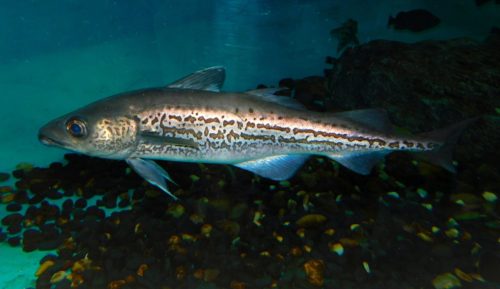
SalmonState Frustrated With NPFMC Lack Of Action On Pollock Fleet Bycatch Concerns


As the North Pacific Fishery Management Council has pondered how to combat bycatch concerns by the commercial pollock fleet in Alaskan waters without a legitimate solution, SalmonState posted the following press release:
Despite task force recommendations, North Pacific Fishery Management Council again fails to act on bycatch
At December council meeting, NMFS shared that it is considering updating federal guidelines to better reflect need for equity and climate resiliency
FOR IMMEDIATE RELEASE
December 14, 2022
ANCHORAGE— Despite hearing hours of heartfelt, powerful testimony from Indigenous Alaskans, fishermen, and other concerned citizens and after receiving recommendations from Governor Mike Dunleavy’s Alaska Bycatch Review Task Force, the North Pacific Fishery Management Council failed to take meaningful action to reduce the pollock trawl fleet’s prolific catching, killing and wasting of highly valued king salmon, chum salmon, snow crab and Bristol Bay red king crab. One bright spot from the week-long meeting, however, was a report from the National Marine Fisheries Service (NMFS), which indicated it may review guidelines governing bycatch.
“While the council’s failure to rein in the pollock trawl fleet’s prolific bycatch and unpermitted dragging of the seafloor is frustrating, it is not surprising. The North Pacific Fishery Management Council process is not designed to allow for the nimble and responsive action needed at this time of profound environmental change,” said SalmonState executive director Tim Bristol. “One of the glimmers of hope that came out of this meeting, however, is the National Marine Fisheries Service’s announcement that it may update the guidance for national standards governing bycatch to better reflect priorities like equity and climate resilience. We applaud that announcement and are looking forward to working in a more productive way to change this unfair, inequitable allocation of resources.”
The national standards, which are determined by Congress, are “principles that must be followed in any fishery management plan to ensure sustainable and responsible fishery management.” Each standard has guidelines from NMFS as to how it is to be implemented, and every fishery must follow those guidelines.
Specifically, in its written report to the council, NMFS wrote “NMFS is aware that some national standard guidelines have not been reviewed in more than a decade. As such, and given the ties to other priorities such as climate resilience and equity, NMFS is considering initiating review of guidance for National Standards 4, 8, and 9 which outline the principles related to allocations, communities, and bycatch.”
“Indigenous fishers and small-boat harvesters have for too long shouldered the burden of conservation while the pollock trawl fleet continues its documented and unseen catching and killing of enormous numbers of salmon and crab,” Bristol continued. “The council even failed to implement the hard cap on chum salmon bycatch recommended by Governor Dunleavy’s task force. In light of this failure we are grateful to NMFS for prioritizing equity and the resilience of our fisheries and communities.”
The council’s December meeting, held in Anchorage, concluded today.
Read the media advisory SalmonState sent out at the start of the council meeting.
SalmonState works to keep Alaska a place where wild salmon and the people who depend on them thrive.



